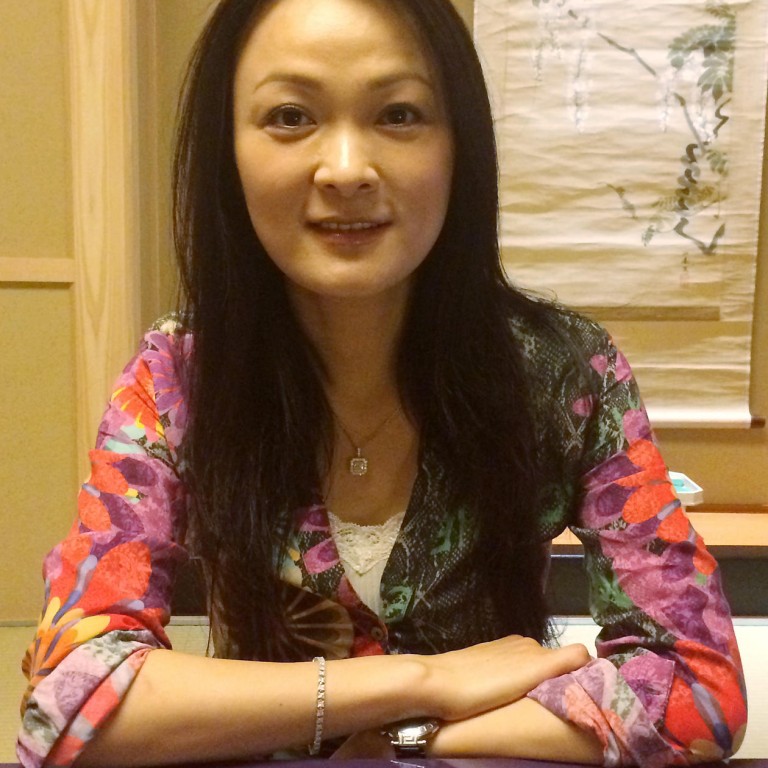
Hong Kong's most unusual restaurant
We recently had the pleasure of dining at a Japanese restaurant which we can safely say is like no other in Hong Kong.
The restaurant is in the style of Kyoto kaiseki, which essentially draws on the traditional cuisine of the imperial court when Kyoto was the capital. It is, to say the least, high-end Japanese cuisine. But it is more than just a meal.
Without wanting to sound too pretentious, dining at this restaurant is a kind of art form. It's a balance between the food, the way it is served, the dishes and bowls that are used, the décor, and the music.
There has been immense attention to detail and this is reflected in the eye-watering eight months it took to fit out and decorate the restaurant before opening.
Given the rents in Hong Kong, this was some commitment to getting it right. The workmen were flown in from Japan, as were the 10 waitresses. They were trained for three months on how to serve customers correctly, how to perform the tea ceremony, and arrange flowers. They are overseen by a supervisor experienced in Kyoto kaiseki.
The attention to detail doesn't stop there. All the ingredients for the food, and the water to cook the rice and to make tea, all come from Japan. The dishes and bowls are not only Japanese, they are antiques. Even the pebbles that form part of a decorative traditional Japanese garden come from Japan. The washrooms are obviously Japanese since on entry, the lid automatically opens invitingly.
The thought that came to mind more than once during dinner is, why is it necessary to go to so much trouble when they could probably make the same kind money for a lot less effort and expense? It felt like a sacrilege to ask the question.
"We are aiming to create something perfect," says Jerry Wang, one of the restaurant's three partners. "We believe that if we create perfection, then business will come." Hardly your standard business school response.
"But surely," we persist, " most customers don't appreciate the significance of the décor, and the antiques." Wang replies, "It doesn't matter … it's the details that provide the results for our customers."
In case you are wondering, the food is excellent, but you need to be in good company since the meal can take up to four hours. The food is supposed to be restricted to traditional dishes. We were served 35 dishes altogether, which included a delicious Ohmi beefsteak with foie gras in miso sauce.
Wang is a software engineer but is steeped in the knowledge and culture surrounding Kyoto kaiseki. He is passionate about it. You would have to be indeed to set up such an exhaustingly detailed enterprise.
The restaurant has been open for about five months but Nicole Yeung, another partner, concedes that business has not been as good as anticipated. "It's an unusual concept outside Japan and will need time to work," she says.
The name of the restaurant is Thirty-Eight, but you won't find it in one of the swanky malls, nor does it have plate-glass windows allowing you to see who is inside. It is discretely tucked away on the first floor of 38 Caine Road in the Mid-Levels. It can take a maximum of 20 guests - in two rooms of five, and one of 10.
Entrance is by a lift but is so arranged that guests from the different rooms don't come into contact with each other, even in the washroom.
"Maintaining the privacy of our guests is important," Wang says. "We don't want everyone to know who's been to Thirty-Eight."
Dining here is by no means cheap. The meals are preset, so there is no a la carte menu. Lunch costs HK$1,500 and lasts for about two hours. There are two dinner options of HK$3,000 and HK$5,000.
The restaurant does not have a website, it doesn't advertise, and even its address is not on Wang's name card. "It makes no difference - people are not going to come even if they know the address. They might come for HK$500. But if a close friend tells about the restaurant, then you will come."
Wang admits dining at Thirty-Eight is expensive but he suggests imagining it as a trip out of Hong Kong for three to four hours. "We are not selling you food, we are giving you an experience," he insists.
Hopefully, it will, in time, be a profitable experience for him, too. Thirty-Eight can be contacted at 2798 9989.
Have you got any stories that Lai See should know about? E-mail them to [email protected]

